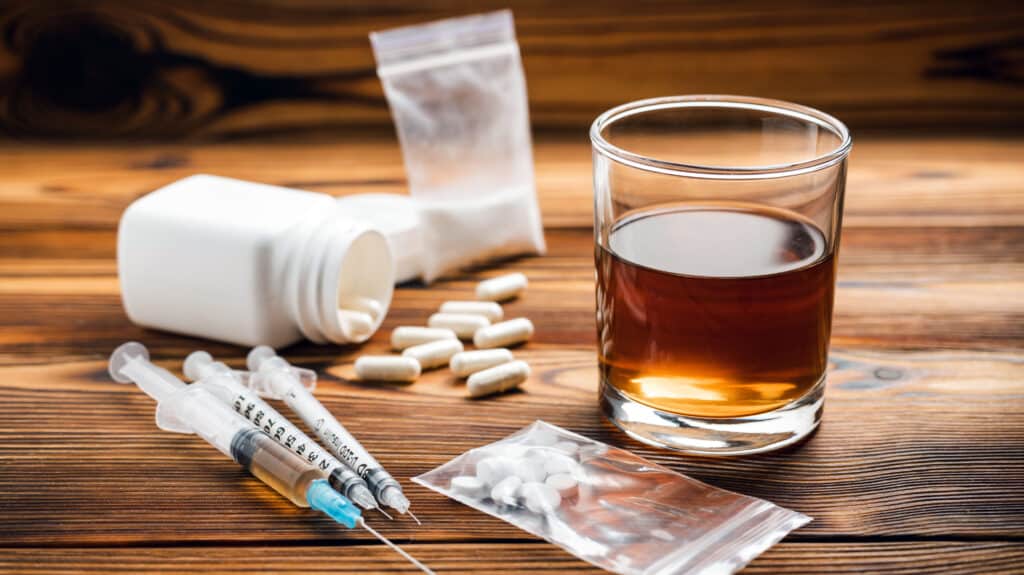Common drug abuse and addiction myths may downplay the risk of certain drugs, or blame the victim for developing an addiction. In reality, drug addiction caused by opioids, benzodiazepines, stimulants, and other drugs affects millions of Americans and their family members every year.
Common myths and misconceptions about drug use can create a stigma around addiction, making it difficult to reach out for help.
Drug addiction can put your health at risk and hurt your relationships with others. Although addiction can be serious, it is also treatable with professional help.
Myth 1: Drug Addiction Is Your Fault
Many people believe that an addicted person can simply stop taking drugs or alcohol, and if they do not, the addiction is their fault. In reality, medical professionals classify addiction as a mental health problem.
Drug use can often start due to poor mental health, poverty, or trauma. Many people who take prescription drugs for health reasons can develop an addiction. Others may start taking drugs in the short-term only.
The side effects of drugs and a poor quality of life can lead to continued drug use. You also cannot control how drugs affect your brain.
Myth 2: You Only Need Willpower To Quit
Drug addiction can change your brain chemistry. You may struggle to feel happy or content, and may feel cravings when you are not getting high.
Withdrawal symptoms from quitting drugs can cause muscle pain, seizures, hallucinations, mood swings, and severe depression. These symptoms can even be life-threatening.
A person struggling with these withdrawal symptoms may not succeed with willpower alone. They may also need professional help, medication, and treatment to help overcome what is considered a chronic disease.
Myth 3: Marijuana Is Not Addictive
Marijuana use is popular among Americans of many backgrounds and ages. A common myth about marijuana is that alcohol and cigarettes are more dangerous, and that marijuana is not addictive.
While nicotine and alcohol use can be harmful to your health, marijuana can also be habit-forming. The Centers for Disease Control and Addiction (CDC) states that between 10 to 30 percent of people who abuse marijuana may become addicted.
A marijuana addiction can hurt your health in the long term, similar to other forms of addiction.
Myth 4: Prescription Drugs Are Always Safe
Prescription drugs can be just as or even more potent than over-the-counter drugs. However, your doctor can prescribe drugs with specific instructions, doses, and how often you should take them. If you follow these instructions, you can reduce your risk of negative side effects.
If you abuse drugs without a prescription, you may not have a schedule or instructions from a licensed provider. Misusing prescription drugs can increase your risk of unwanted and negative side effects.
Myth 5: Successful People Cannot Get Addicted
While poverty and unemployment are risk factors for drug addiction, addiction can affect people of all statuses, incomes, and backgrounds.
According to 2022 data from the CDC, about 13 million workers in the U.S. have a substance use disorder.
High-functioning people with an SUD can hide their drug problem for long periods of time. They may even abuse drugs at work. However, an SUD can increase your risk of losing your job or finding future employment.
Myth 6: People With Addiction Are Criminals
In the past, people who abused drugs were often fined or jailed. However, studies show that imprisoning people for drug use may not reduce rates of abuse as a whole. Newer laws have attempted to encourage people who abuse drugs to enter addiction treatment.
If you fail a drug test, it may be a sign that you need help, not that you are a criminal. Local resources can help you find addiction treatment if you are concerned about your drug use.
Myth 7: Addiction Treatment Programs Will Always Cure You
Every person’s brain may respond to drug use, detox, and withdrawal differently. Professional treatment options can prepare you for a life after addiction, but they may not erase the effects of drug use on your brain. There may not be a treatment plan that works 100 percent of the time.
However, studies show that people who enter a drug or alcohol addiction treatment plan have lower rates of relapse, higher quality of life, and more successful treatment outcomes than people who do not. Professionals may recommend seeking treatment over refusing it for this reason.
At our substance abuse treatment center, we can give you professional help, a safe environment, and resources to help you recover. To find out if our evidence-based addiction treatment options are a good fit for yourself or a loved one, please contact us today.
People Also Read:
Sources:
- Centers for Disease Control and Prevention – Workplace Supported Recovery: New NIOSH Research Addresses an Evolving Crisis
- Indian Health Service – Myths About Substance Use Disorders
- National Institute on Drug Abuse – Drug Facts: Shatter the Myths

